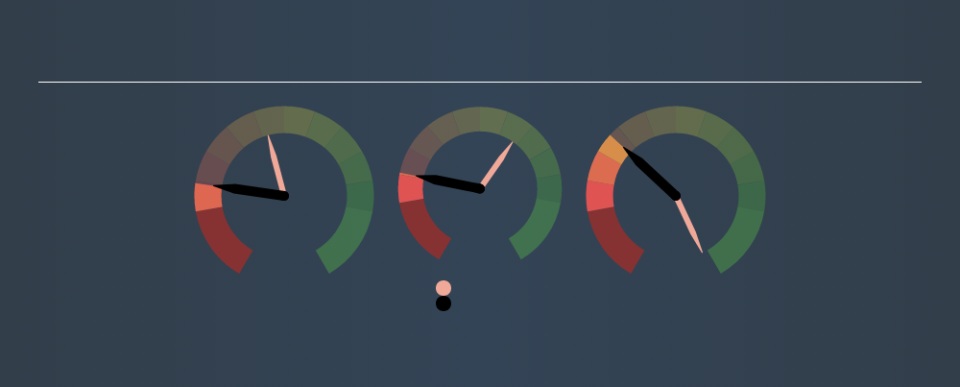Are Digital Bros S.p.A.’s (BIT:DIB) Returns Worth Your While?

Today we are going to look at Digital Bros S.p.A. (BIT:DIB) to see whether it might be an attractive investment prospect. To be precise, we'll consider its Return On Capital Employed (ROCE), as that will inform our view of the quality of the business.
Firstly, we'll go over how we calculate ROCE. Second, we'll look at its ROCE compared to similar companies. Last but not least, we'll look at what impact its current liabilities have on its ROCE.
What is Return On Capital Employed (ROCE)?
ROCE is a measure of a company's yearly pre-tax profit (its return), relative to the capital employed in the business. In general, businesses with a higher ROCE are usually better quality. Ultimately, it is a useful but imperfect metric. Author Edwin Whiting says to be careful when comparing the ROCE of different businesses, since 'No two businesses are exactly alike.
How Do You Calculate Return On Capital Employed?
The formula for calculating the return on capital employed is:
Return on Capital Employed = Earnings Before Interest and Tax (EBIT) ÷ (Total Assets - Current Liabilities)
Or for Digital Bros:
0.063 = €4.9m ÷ (€141m - €64m) (Based on the trailing twelve months to September 2019.)
Therefore, Digital Bros has an ROCE of 6.3%.
See our latest analysis for Digital Bros
Is Digital Bros's ROCE Good?
ROCE is commonly used for comparing the performance of similar businesses. Using our data, Digital Bros's ROCE appears to be around the 6.3% average of the Entertainment industry. Aside from the industry comparison, Digital Bros's ROCE is mediocre in absolute terms, considering the risk of investing in stocks versus the safety of a bank account. Investors may wish to consider higher-performing investments.
Digital Bros's current ROCE of 6.3% is lower than 3 years ago, when the company reported a 40% ROCE. This makes us wonder if the business is facing new challenges. You can click on the image below to see (in greater detail) how Digital Bros's past growth compares to other companies.
When considering ROCE, bear in mind that it reflects the past and does not necessarily predict the future. Companies in cyclical industries can be difficult to understand using ROCE, as returns typically look high during boom times, and low during busts. ROCE is, after all, simply a snap shot of a single year. Future performance is what matters, and you can see analyst predictions in our free report on analyst forecasts for the company.
Digital Bros's Current Liabilities And Their Impact On Its ROCE
Current liabilities are short term bills and invoices that need to be paid in 12 months or less. The ROCE equation subtracts current liabilities from capital employed, so a company with a lot of current liabilities appears to have less capital employed, and a higher ROCE than otherwise. To counter this, investors can check if a company has high current liabilities relative to total assets.
Digital Bros has total liabilities of €64m and total assets of €141m. As a result, its current liabilities are equal to approximately 46% of its total assets. Digital Bros's ROCE is improved somewhat by its moderate amount of current liabilities.
Our Take On Digital Bros's ROCE
Unfortunately, its ROCE is still uninspiring, and there are potentially more attractive prospects out there. Of course, you might also be able to find a better stock than Digital Bros. So you may wish to see this free collection of other companies that have grown earnings strongly.
If you are like me, then you will not want to miss this free list of growing companies that insiders are buying.
We aim to bring you long-term focused research analysis driven by fundamental data. Note that our analysis may not factor in the latest price-sensitive company announcements or qualitative material.
If you spot an error that warrants correction, please contact the editor at editorial-team@simplywallst.com. This article by Simply Wall St is general in nature. It does not constitute a recommendation to buy or sell any stock, and does not take account of your objectives, or your financial situation. Simply Wall St has no position in the stocks mentioned. Thank you for reading.

